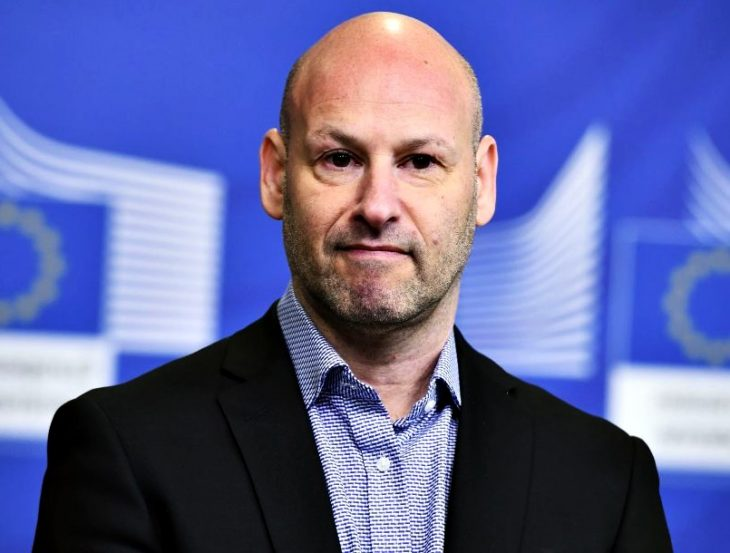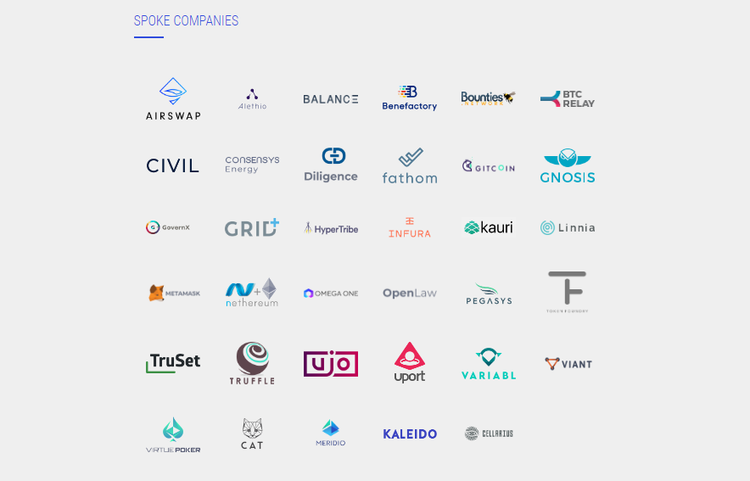Joseph Lubin — Co-Founder of Ethereum and ConsenSys
Ethereum and ConsenSys co-founder Joseph Lubin does not see the recent cryptocurrency price collapse as a constraint to further growth.
Speaking to Bloomberg last month, Lubin said “the value surges of the past year are just another bubble” like the previous “six big bubbles, each more epic than the previous one, and each bubble is astonishing when they’re happening.”
Lubin foresees a future where ethereum will be significant among hundreds of other protocols, which will co-exist.
“This is what it feels like to be living in exponential times,” he said.
Who is Joseph Lubin?
Born in Toronto in 1964, Lubin graduated from Princeton University with a degree in Electrical Engineering and Computer Science.
The Canadian entrepreneur, whose net worth is estimated between one to five billion dollars, began his career working in robotics, machine vision, neural nets and software engineering.
He then transitioned into finance. Long before founding ConsenSys, one of the most influential startups in blockchain, he worked his way up the ladder in the late 1990s to become the vice president of technology for the private wealth management division of Goldman Sachs. Before joining ethereum he even worked on a music project in Jamaica.
By January 2014, Lubin had met ethereum co-founders Anthony Diiorio and Vitalik Buterin, and committed to joining the ethereum project.
After leaving ethereum, a blockchain-based platform for smart contracts and applications, Lubin founded ConsenSys, which helps startups build on top of the ethereum network.
Lubin recently earned a mention on Forbes’ list of the world’s wealthiest digital currency owners.
Lubin and Ethereum
Joseph Lubin says that after reading the Satoshi Nakamoto bitcoin white paper, he felt blockchain technology could serve as "an organizing principle for Earth, the world, the planet.”
In December 2013, Joseph met Vitalik Buterin in Toronto, their hometown, a month after Vitalik had written the white paper describing ethereum.
A few weeks later, Vitalik delivered the ethereum paper at the North American bitcoin conference in Miami.
“We are taking the core ideas from the bitcoin blockchain and we are improving them in a variety of ways, making it faster and more secure,” Lubin then said of ethereum.
“While the bitcoin network is all about financial transactions and storage of value, our system and our token can do that, but it’s really a distributed application platform. It’s the global computer for running programs on that system,” Lubin told The Epoch Times in May 2014.
Joseph Lubin is rumored to be one of the top buyers in the ethereum crowdsale. Although he insists he sold some of his ethers to fund the ConsenSys development, crypto-industry insiders believe he may be the single largest holder of ether, with valuations as high as $10 billion.
Lubin now says that Phase 2’ development of ethereum is in progress.
“[Ethereum is moving] into a space where it can serve as the layer one trust system and built into ethereum we’ll have hundreds of thousands of transactions in the layer two systems and we’re going to see that ramified this year,” he told a panel discussion at RISE – Asia’s largest Tech conference with over 15,000 attendees CryptoSlate reports.
Ethereum, he said, will become a base layer for decentralized applications (dApps) built on its second-layer sidechains, allowing dApps to maintain the Ethereum protocol’s security while operating independently to avoid network congestion.
ConsenSys
Based in Brooklyn, New York, ConsenSys is a venture production studio building decentralized applications and various developer and end-user tools for blockchain ecosystems, primarily focused on ethereum.
ConsenSys describes itself as a “hub” that coordinates, incubates, accelerates and spawns “spoke” ventures through development, resource sharing, acquisitions, investments and the formation of joint ventures.
As of July 2018, ConsenSys had more than 900 employees and consisted of 48 spokes. ConsenSys is developing a variety of applications which operate on the globally distributed computing platform.
“Powered by smart contracts and secured through encryption, our solutions provide the benefits of transparency, auditability, and immutability that are unique to blockchain-based solutions,” says the team behind ConsenSys.
ConsenSys platforms and applications range from re-imaginations of foundational industries like supply chain (Viant), energy (Grid+), journalism (Civil) and law (OpenLaw), to cornerstones of the digital asset economy (Airswap, Balanc3), and groundbreaking dApps like Ujo, Gitcoin, Bounties.Network, and Gnosis that provide real utility, create value, and are leading the way towards global, decentralized economies. (For more apps click here).
Furthermore, ConsenSys Services provides consultation and enable partnerships in fields that run from tech to enterprise, government, education, community, and the media.
The company is also doing educational work. Its academy is developing the global blockchain ecosystem by bridging the ethereum knowledge gap.
“ConsenSys Academy has educated about 1,500 working engineers and lots of lawyers and other kinds of learners who’ve gone to places like companies and the World Bank and run a half day or one-day programs,” Lubin said in a recent interview with Bitcoin Exchange Guide.
ConsenSys will be developing a blockchain-based platform that will facilitate the trading of commodities including petroleum and agricultural products.
"We are now entering a new era of simple and inclusive access to blockchain technology to advance stronger, more collaborative, business relationships previously out of reach," said Joseph Lubin.
According to Reuters, the initiative called komgo SA brings together ABN AMRO, BNP Paribas, Citi, Crédit Agricole Group, Gunvor, ING, Koch Supply & Trading, Macquarie, Mercuria, MUFG Bank, Natixis, Rabobank, Shell, SGS and Société Générale.
"We are thrilled to see leading commodity trade finance banks and commodity houses come together to create komgo SA, which will radically simplify and accelerate trustworthiness, auditability, and accessibility to trade financing across the industry," Lubin said of the initiative.
Subscribe to our Telegram channel to stay up to date on the latest crypto and blockchain news.





